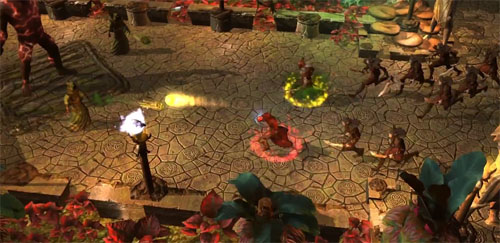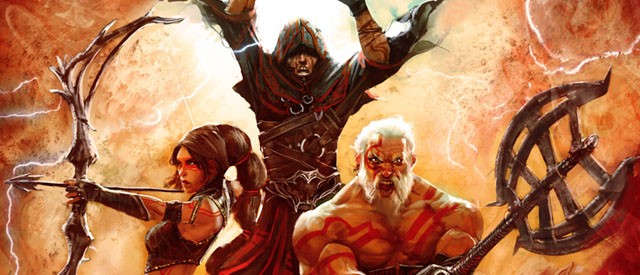Realms of Ancient War (henceforth RAW) may have escaped your notice last week. Perhaps you were too busy collecting those bazillion guns in Borderlands 2 or contemplating your perfect Embermage build in Torchlight 2 to notice the quiet release of RAW smack dab in the middle of those two huge titles. It’s certainly somewhat misfortunate timing as RAW is an Action RPG as well. Perhaps, though, it may speak to those gamers who like the traditional top-down design, yet wish to play on a console (as Torchlight 2 is bound to the PC).
I certainly had high hopes for RAW. I’d watched the trailers and liked the dark, gritty look the developer was going for. I also highly support top-down ARPGs on consoles. To top things off, I had a local co-op partner at hand (as the game only supports 2-player local co-op). Things were looking good.
So let’s get the basics out of the way. As can be expected of a game of this genre, RAW’s story is not overly complex. It’s no better and no worse than I expected, and plays a pretty minor role in the game. The game is divided into levels which have a definitive beginning and end. If a level is quit before completed, none of the player’s progress will be saved (as a loading screen tooltip helpfully informed me). Once unlocked, any of these levels can be revisited at a later time. Since RAW is virtually identical in both single-player and co-op play, pretty much all of this review will apply to the co-op gameplay.

Upon loading up a level/map for the game, it’s quite easy to get a second player into the game. If Player 2 just presses the “start” button, he or she will automatically be prompted to choose between the three different classes the game offers: Wizard, Rogue, or Warrior. Player 2 cannot choose the same class as Player 1, however. Now, let me just get the largest co-op oversight out of the way now: Player 2 does not get to keep any progress whatsoever between gaming sessions. Between maps Player 2 will retain any money, gear, and individual XP onto the next map, but as soon as the game is shut down, Player 2’s character will cease to exist. Next time the game is fired up, it will have forgotten about Player 2’s individual character, and will ask once again which class should occupy that slot.
